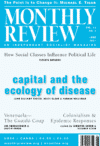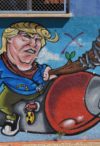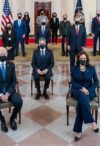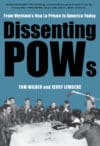United States

One of the key components of U.S.-China strategic competition is the technology war, the essence and implications of which can be further understood in the broader context of the international division of labor and the two countries’ internal contradictions. From this front, we can decipher the antagonism between different classes/groups within and across the two countries. | more…

The Chinese diaspora is compelled either to prostrate to an edifying project of assimilation to U.S. liberal democracy, or be branded as illiberal “Red Guards” unfit for serious political discourse. This discursive context has long mobilized overseas Chinese to affirm the universalism of Western liberalism in opposition to a Chinese despotism defined either by dynastic backwardness or communist depravity. Can overseas Chinese speak for themselves in the face of the West’s “hegemonic right to knowledge?” Or will all such speech that challenges U.S. presuppositions of liberal selfhood and Chinese despotism simply be tuned out as illiberal noise? | more…

Where capitalism itself is concerned, the dominant view is that the COVID-19 crisis constitutes a rare, unpredictable, and unlikely to be repeated occurrence. The world capitalist economy, we are informed, was fundamentally sound prior to the advent of this unforeseen exogenous shock, and it will revive quickly once the SARS-CoV-2 virus is under control. This received view, however, is incorrect on all counts. | more…

How Social Class Influences Political Life
In order to understand what is happening in the United States, in the aftermath of the presidential election, one needs to comprehend the distribution of power in the country. | more…

We who are engaged in the struggle for change might ask: “Through what lens of refraction is the evidence of events recalled and related?” If we are to resist the genocidal use of military force, and to oppose the environmental depredation that follows in its wake, we need to see the roots and laws of motion of colonialism and empire | more…

We can analyze the new Biden administration, its personnel, and the policies it is likely to follow, especially on the all-important questions of the climate crisis and U.S. grand strategy toward China, by looking at the Council on Foreign Relations. | more…

New!
Even if you don’t know much about the war in Vietnam, you’ve probably heard of “The Hanoi Hilton,” or Hoa Lo Prison, where captured U.S. soldiers were held. What they did there and whether they were treated well or badly by the Vietnamese became lasting controversies. As military personnel returned from captivity in 1973, Americans became riveted by POW coming-home stories. What had gone on behind these prison walls? Along with legends of lionized heroes who endured torture rather than reveal sensitive military information, there were news leaks suggesting that others had denounced the war in return for favorable treatment. What wasn’t acknowledged, however, is that U.S. troop opposition to the war was vast and reached well into Hoa Loa Prison. Half a century after the fact, Dissenting POWs emerges to recover this history, and to discover what drove the factionalism in Hoa Lo. | more…

Bill Fletcher Jr. and Bill Gallegos interview Fernando Gapasin on race, class, and building communities of solidarity. | more…

A new poem by Marge Piercy. | more…

A new poem by Marge Piercy. | more…

Writer, editor, and prison activist Susie Day has written a beautiful, heartrending, and inspiring account of the friendship between Paul Coates and Eddie Conway. Both were born in the late 1940s and grew up in Black communities—Paul in Philadelphia and Eddie in Baltimore. Both were members of the Black Panther Party in the late 1960s and early ’70s, and both were harassed by police for their radical activities as Party members. Eddie was wrongfully convicted of killing a Baltimore policeman and spent forty-four years in prison. Through it all, Paul was his steadfast friend and supporter, as well as partner in their political development and commitment to the liberation of Black people in the United States. | more…

The revival of folk music—music derived from rural southern sources, unamplified, and, to a large extent, comprised of old songs of anonymous origin—was more than just another fad. Folk music encapsulated longings for an idyllic past, for a time before crass commercialism turned music into a commodity, and for relationships between musicians and audiences that were egalitarian and holistic. | more…











